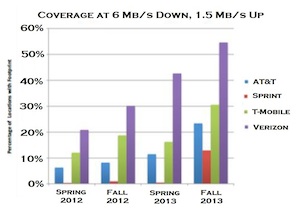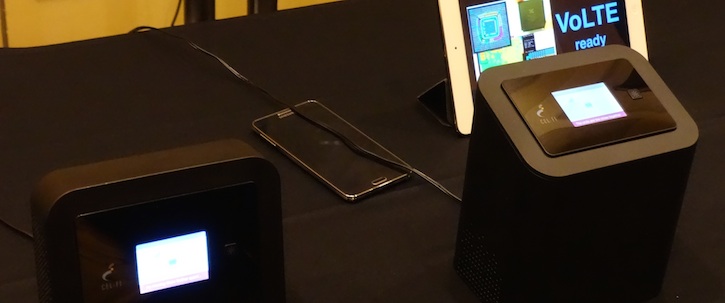Broadcasters delay spectrum auction for at least year, but hey, they're entitled
![By Jaredcreech at en.wikipedia (Transferred from en.wikipedia) [Public domain], from Wikimedia Commons](https://www.tellusventure.com/blog/images/2014/10/old_dog.jpg)
Ten years isn’t so long. Unless you’re a dog. Or the Internet.
The possibility of converting prime spectrum from TV broadcasting to mobile broadband use has been pushed off another year. The FCC is delaying the planned auction of 600 MHz broadcast frequencies until 2016, instead of next summer.
It’ll take that long to sort out a lawsuit filed by the National Association of Broadcasters – the primary lobbying organisation for TV and radio station owners – according to the FCC…
… MoreEarlier this week, the court issued a briefing schedule in which the final briefs are not due until late January 2015.

![By Kander (Own work) [Public domain], via Wikimedia Commons](https://www.tellusventure.com/blog/images/2014/10/carrot.jpg)


![By BP22Heber (Own work) [CC-BY-SA-3.0 (https://creativecommons.org/licenses/by-sa/3.0)], via Wikimedia Commons](https://www.tellusventure.com/blog/images/2014/10/top_secret.jpg)
![By Rpbase (Own work) [CC-BY-SA-3.0 (https://creativecommons.org/licenses/by-sa/3.0)], via Wikimedia Commons](https://www.tellusventure.com/blog/images/2014/10/kentucky_tower.jpg)
![By Steve Kazella (talk) 14:00, 14 July 2009 (UTC) (Own work) [CC-BY-SA-3.0 (https://creativecommons.org/licenses/by-sa/3.0) or GFDL (https://www.gnu.org/copyleft/fdl.html)], via Wikimedia Commons](https://www.tellusventure.com/blog/images/2014/10/antennae.jpg)

![By miheco (Flickr: cell tower in disguise #1) [CC-BY-SA-2.0 (https://creativecommons.org/licenses/by-sa/2.0)], via Wikimedia Commons](https://www.tellusventure.com/blog/images/2014/10/cell_palm.jpg)
